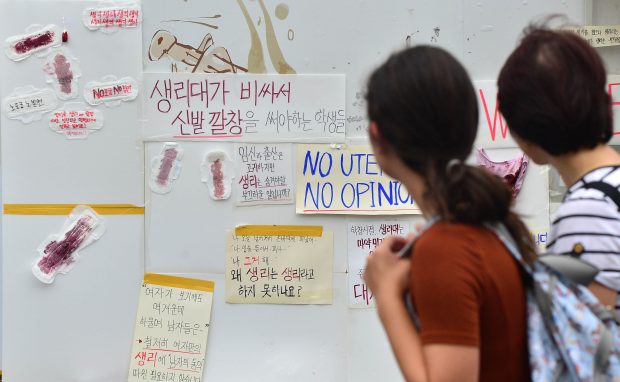“For Vagina’s sake”: the Documentary that South Korea Needs

“Students are using shoe soles because menstrual pads are too expensive” <Photo: Newsis>
The taboo of the menstrual cycle
In 2017, talking openly about menstruation is considered taboo in many places around the world. In some regions, it is even something to hide or to be ashamed of. In developing and underdeveloped countries, the use of rags and cloths as an alternative to pads is a common practice. Due to low hygienic conditions, the chance of contracting urinary or vaginal infections also increases greatly. Even for developed countries, menstruation cycles are an issue for women.
Cost of sanitary pads in South Korea
For instance, in South Korea not everyone can afford sanitary pads that are costly. According to Korea Herald, a single sanitary pad in South Korea costs around 260 won ($0.23) to 331 won, which is around 50 to 70 percent more expensive than most other developed nations. The average price of sanitary pads rose by 25.6 percent from 2010 to 2016. Consequently, a public discussion erupted over the rising price of sanitary pads in the country, including stories of low-income teenagers using toilet paper or shoe insoles instead of sanitary pads. Teachers declared that some female students do not attend classes because of their period. Some Korean teenagers feel uncomfortable talking about menstrual cycle and asking money for sanitary pads. The situation is even more complicated if they are living with their grandparents or a single parent.
Crowdfunding as public awareness campaign
Since the issue was brought to light in 2016, crowdfunding campaigns were launched in order to help needy women. Among these projects, the documentary titled, “For Vagina’s sake” (literal translation of Korean title: “Chronicles of Blood”) seems one of the best ways to break the menstrual cycle taboo in South Korea. On the crowdfunding site, people can find general information about the project and how to donate. Each person can donate a minimum of 50,000 won and up to 2,000,000 won while companies can contribute a maximum of 10,000,000 won. Further discussions on the menstrual cup (feminine hygiene product), including how to use one, will appear in documentaries to be filmed. In a country where the percentage of female politicians is almost nonexistent, a documentary about the menstrual cycle can make a world of difference women’s health.
-By Alessandra Bonanomi, reporter for The AsiaN










































